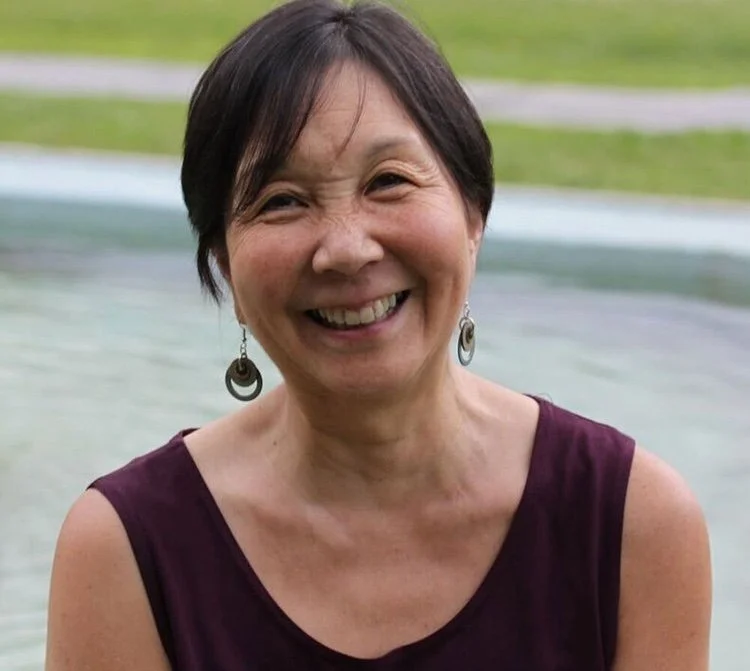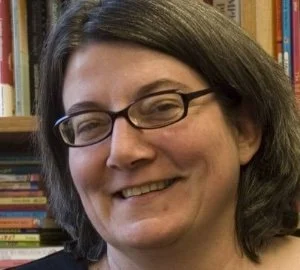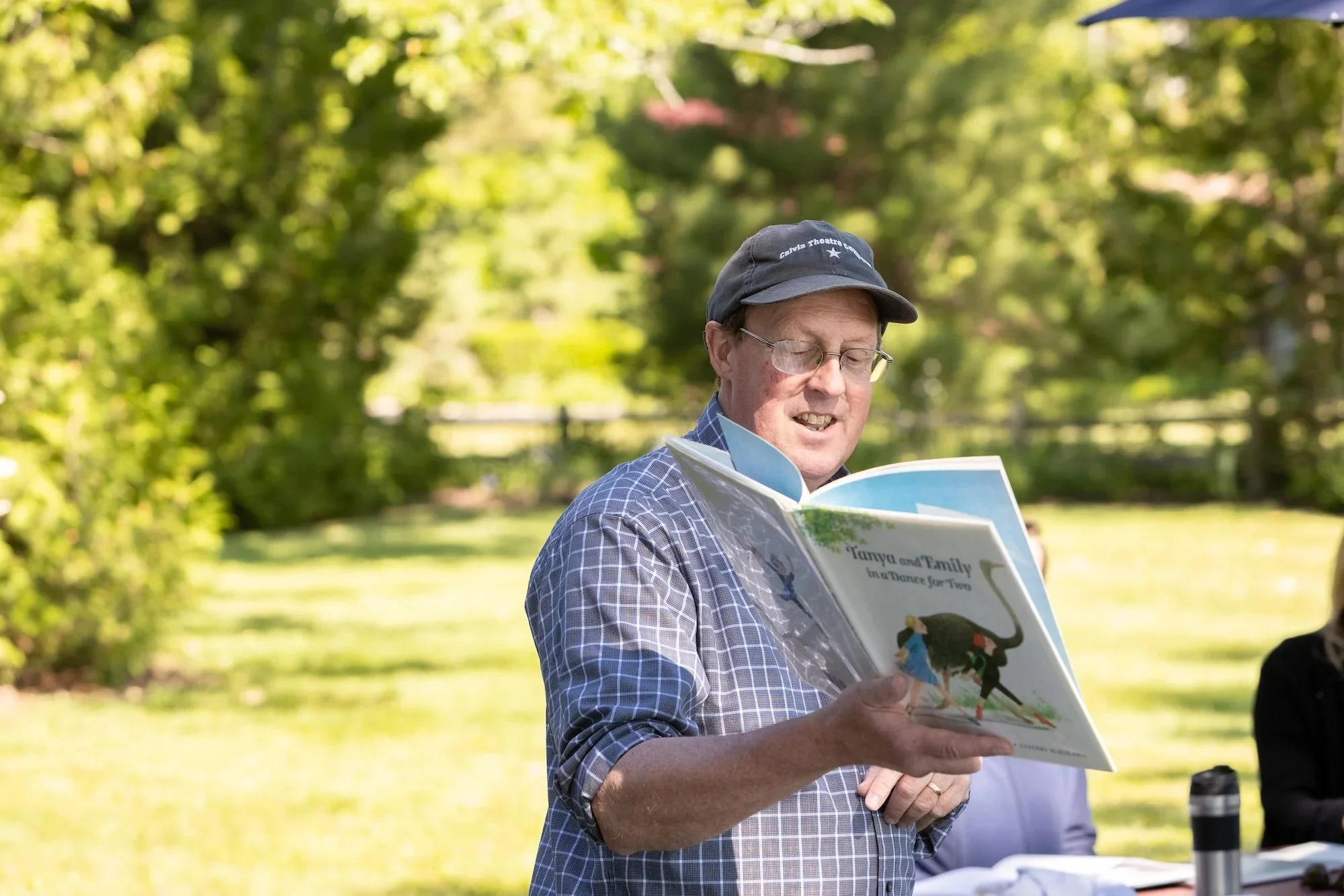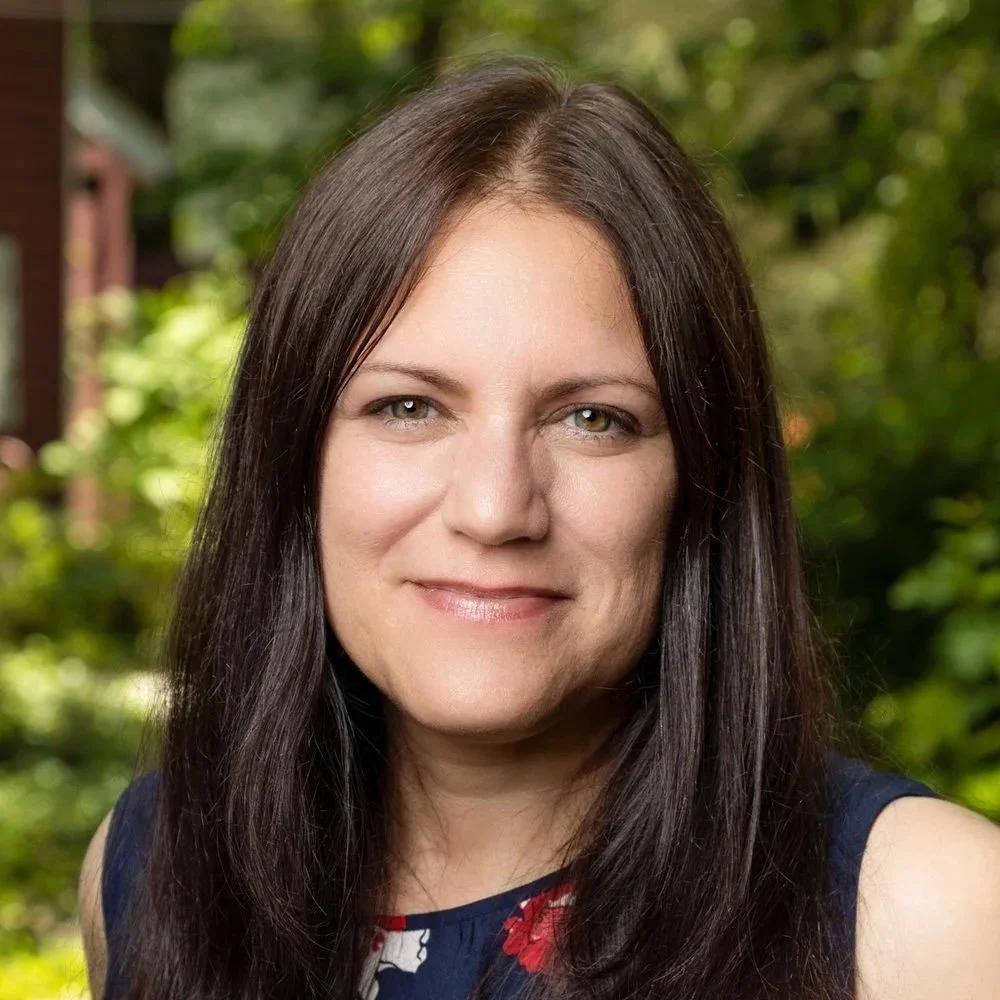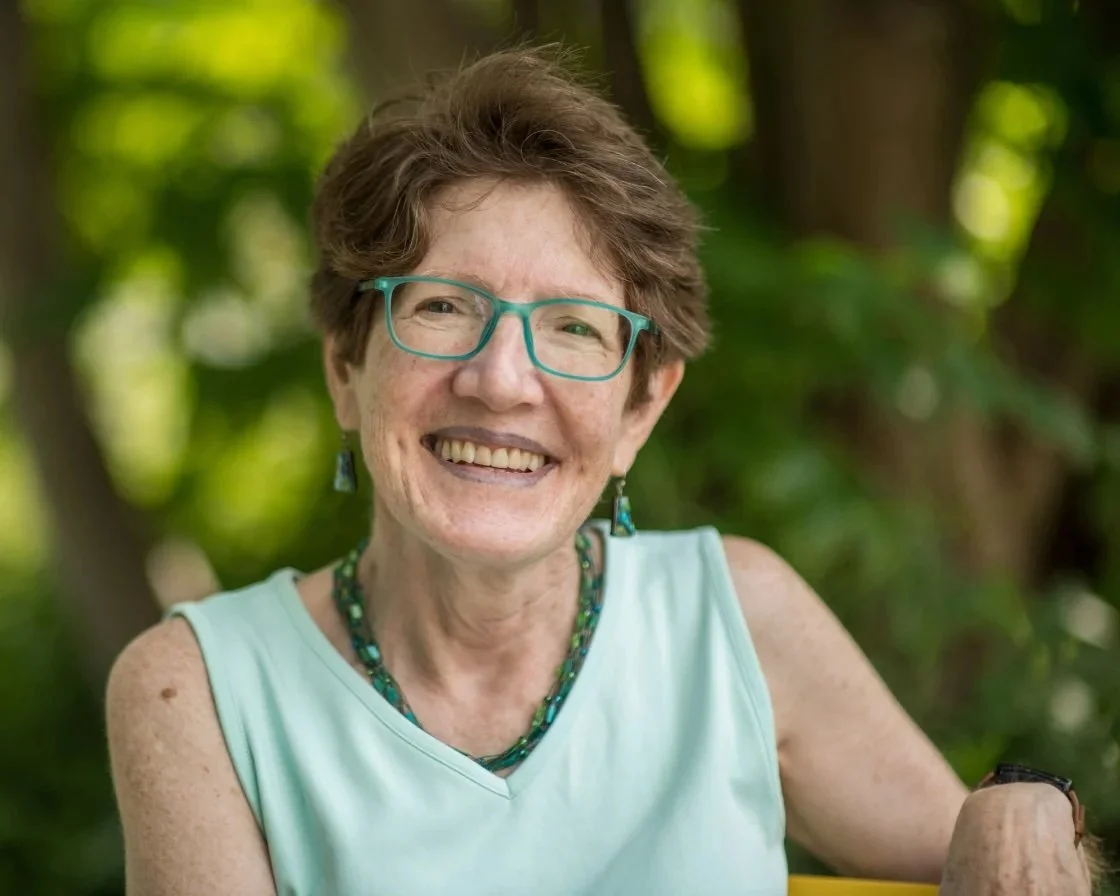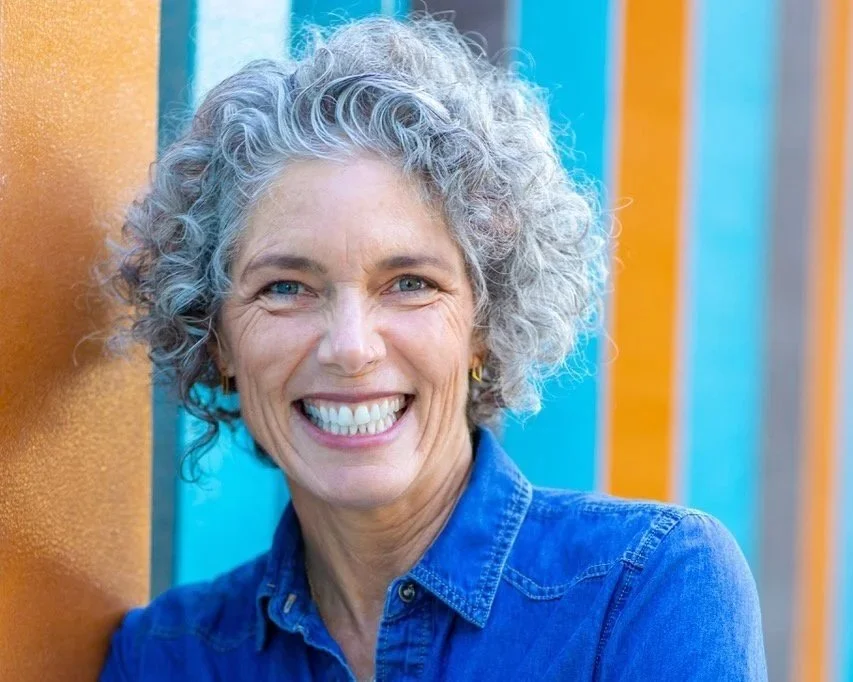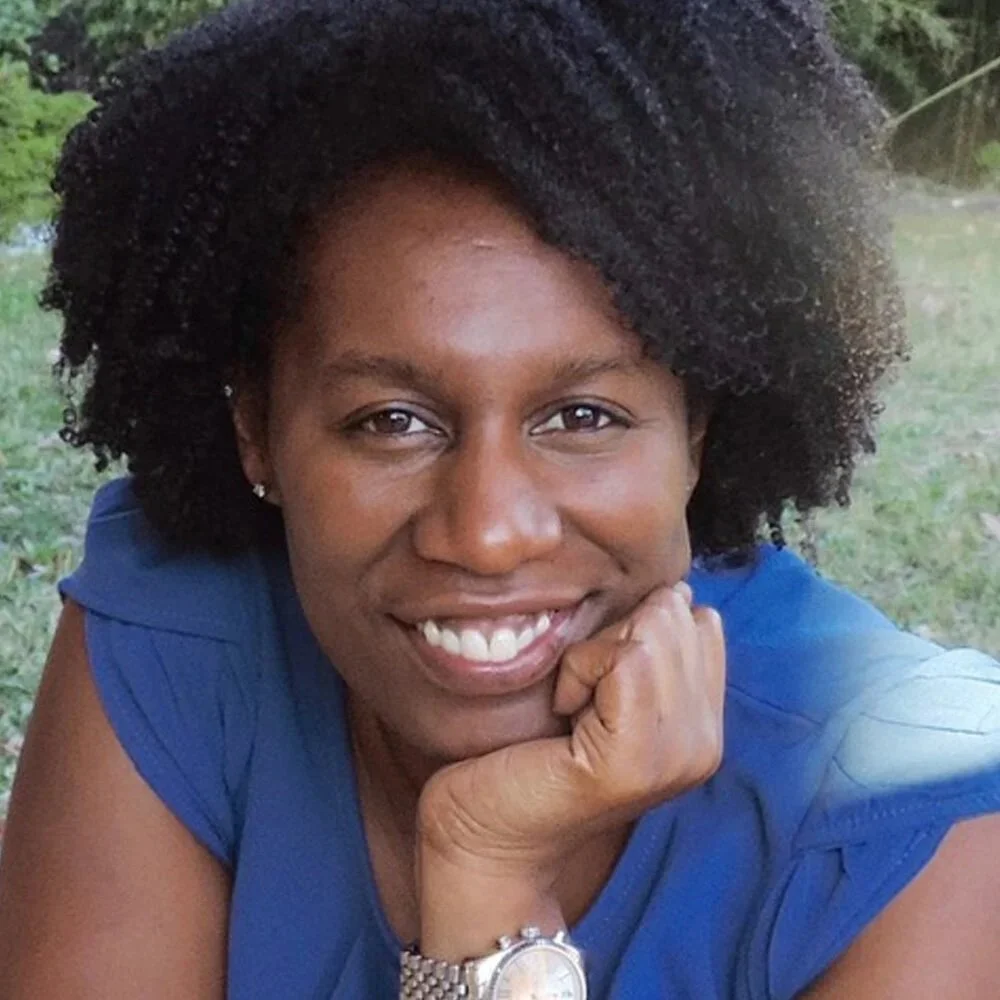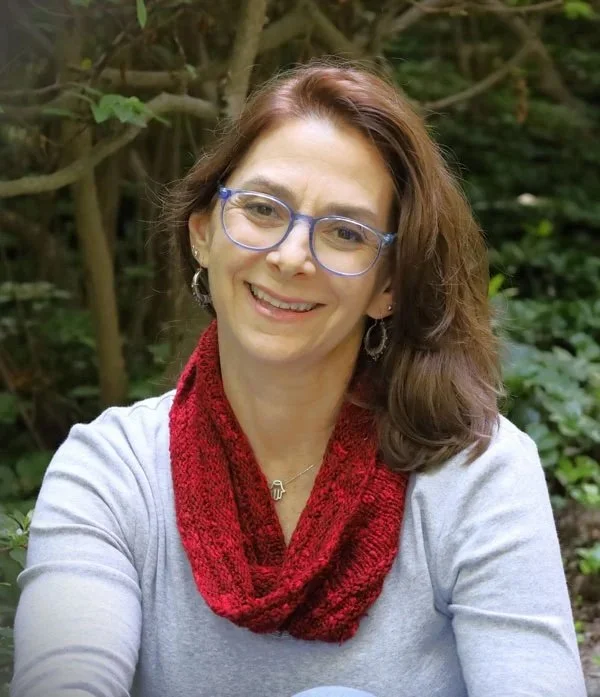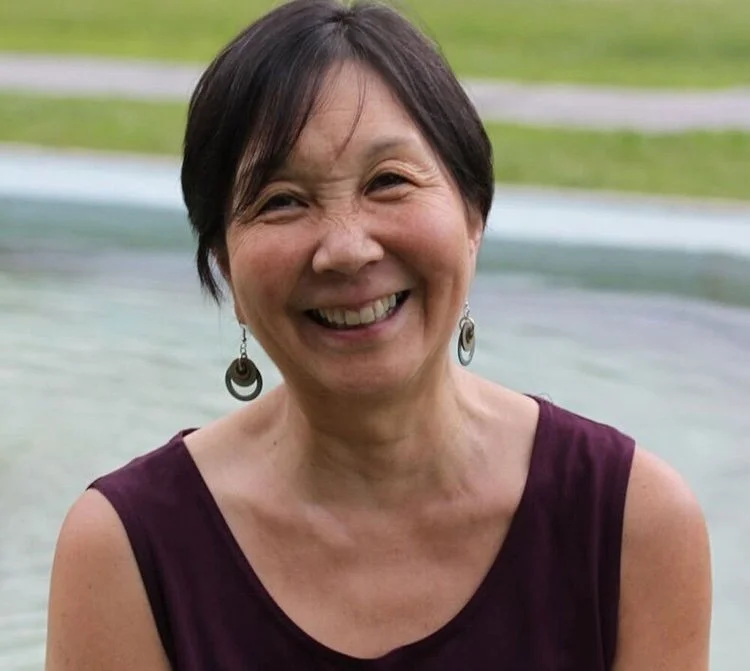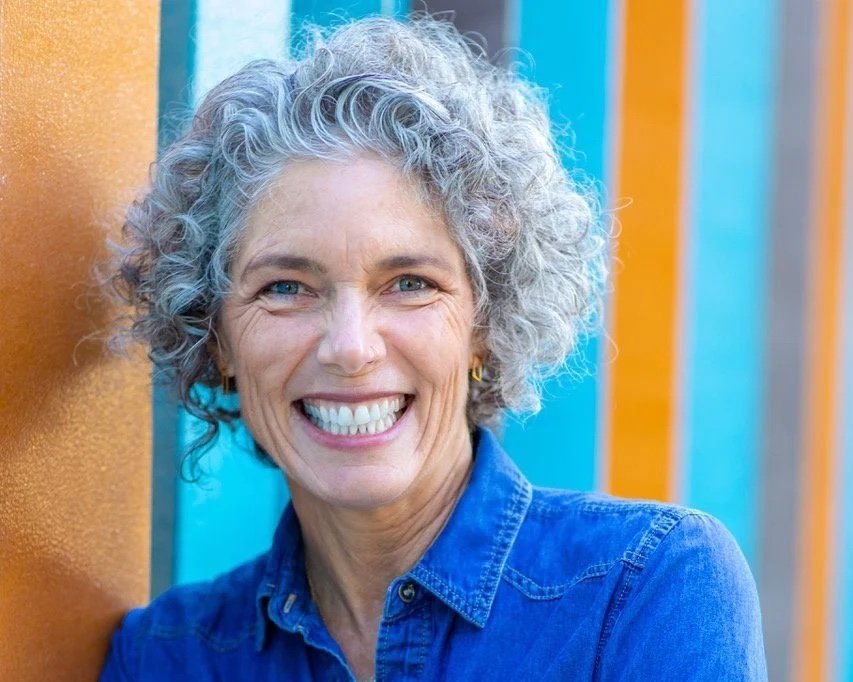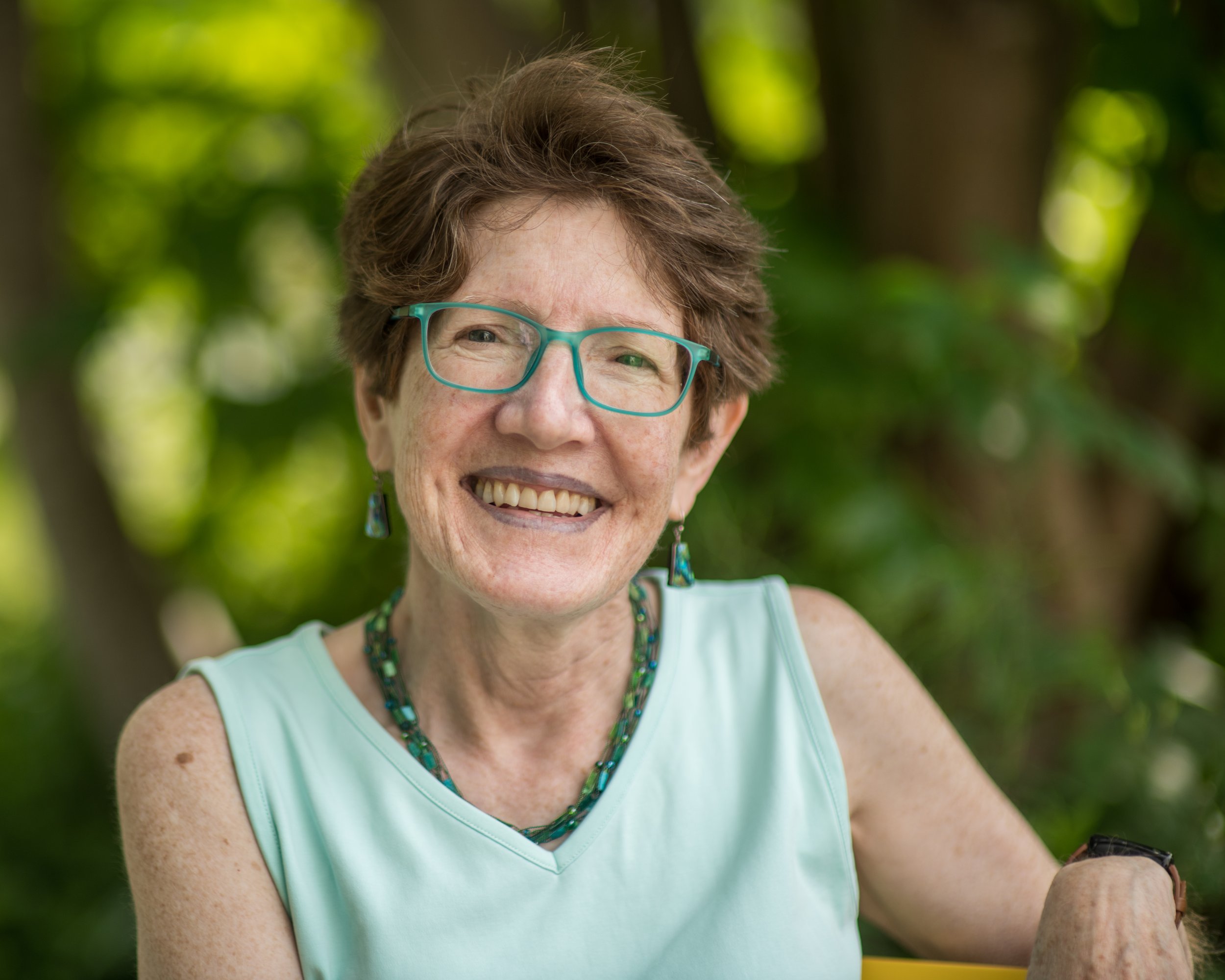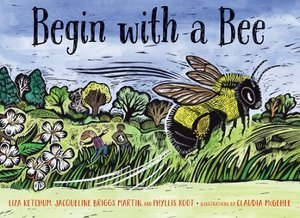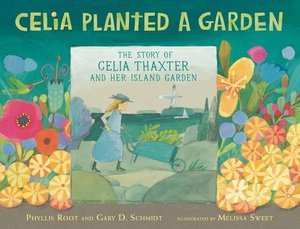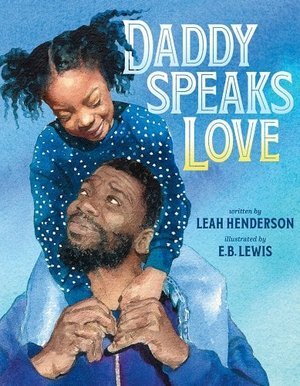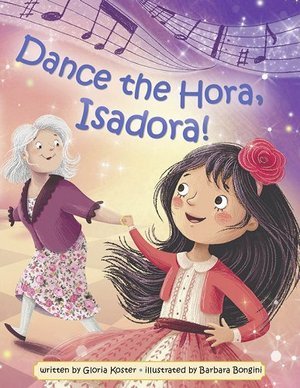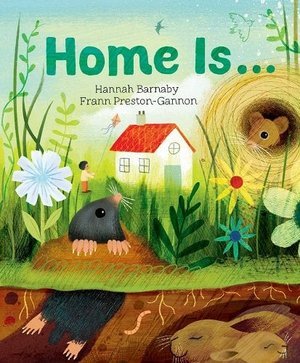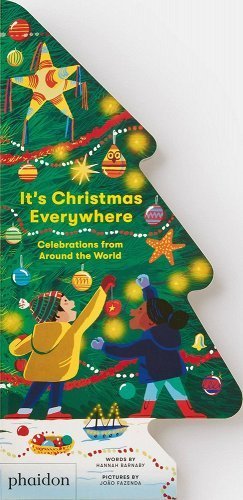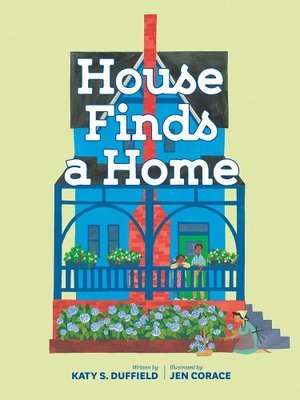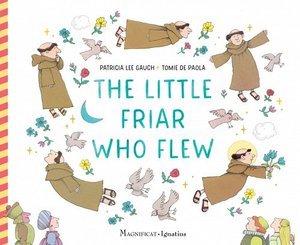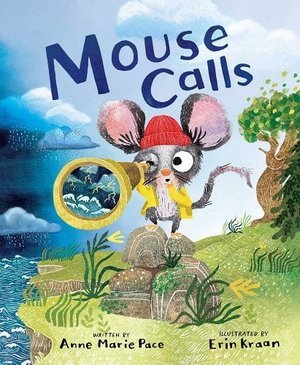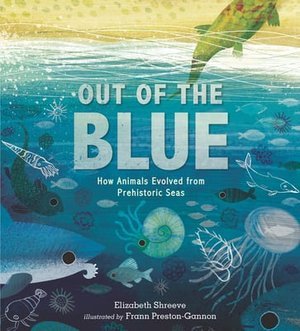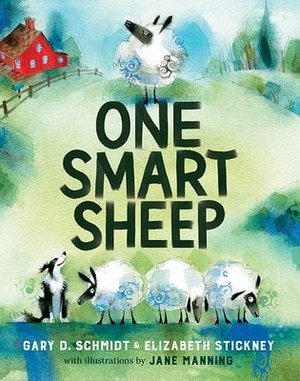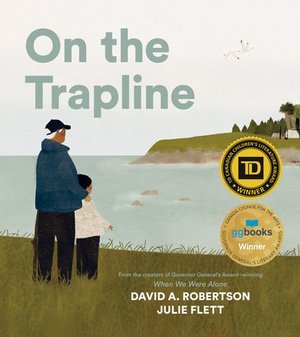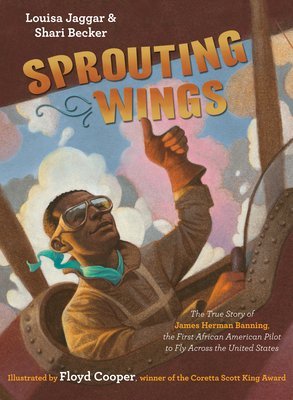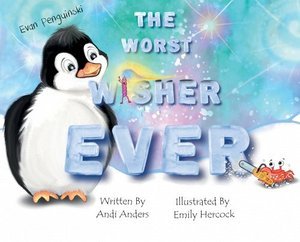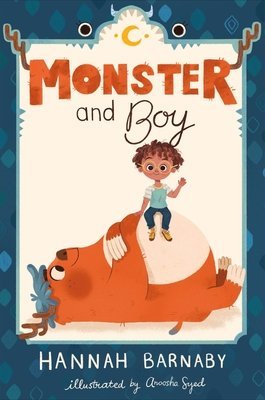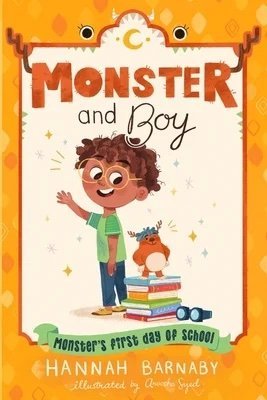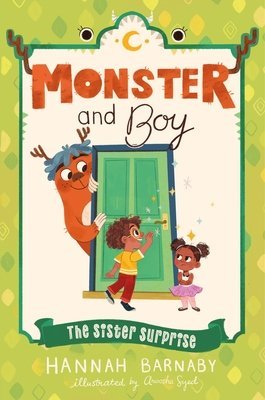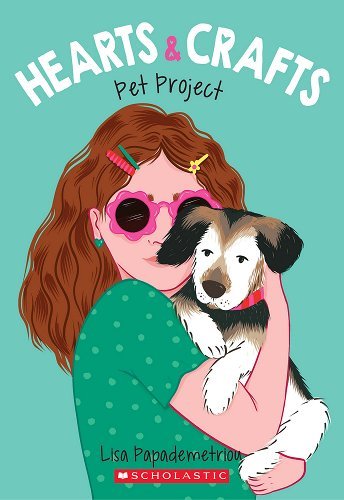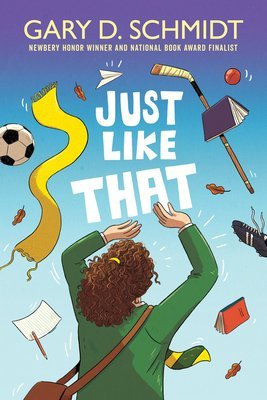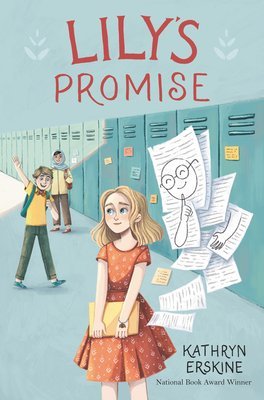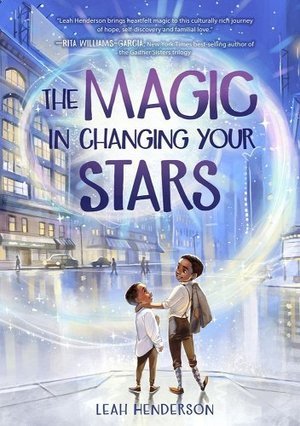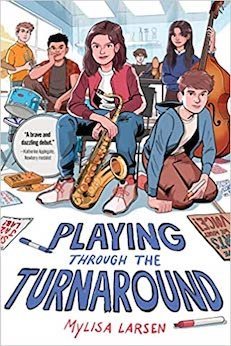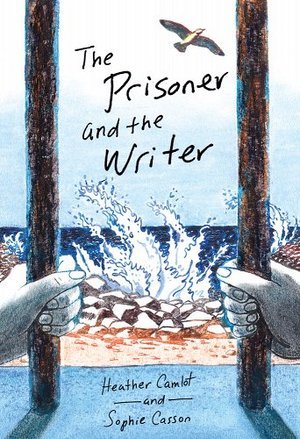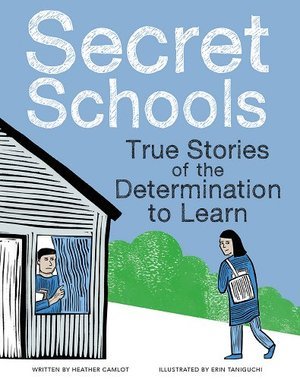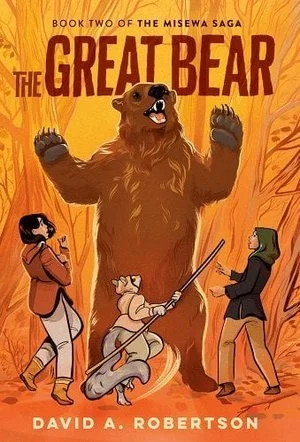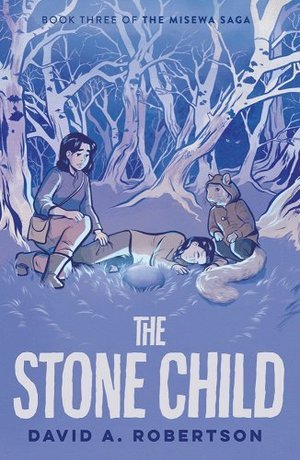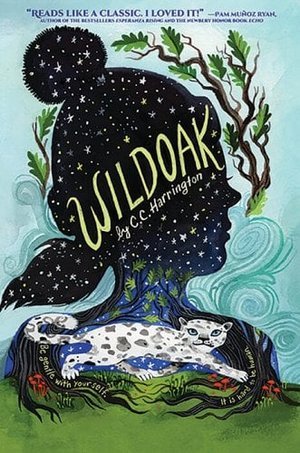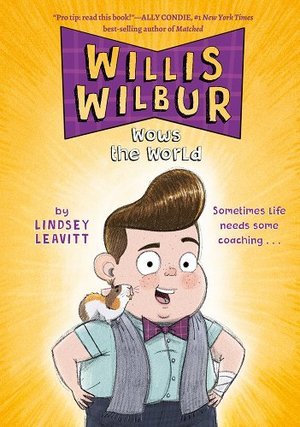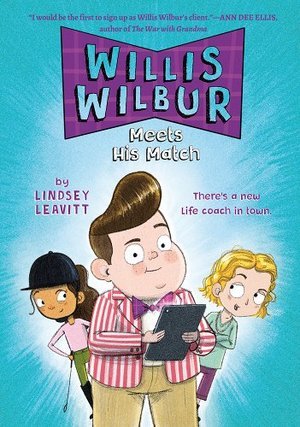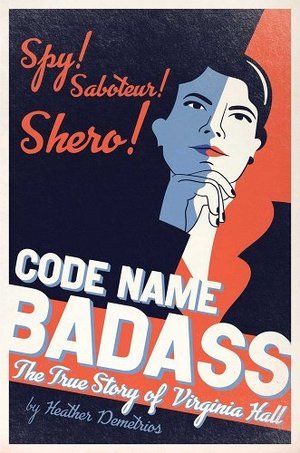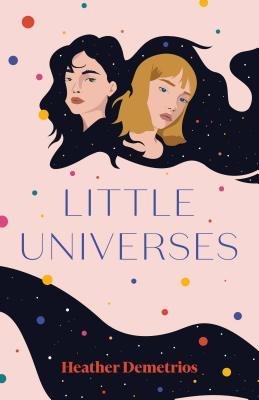
Blog
Meet Our Mentors: Shelley Tanaka
Hi, Shelley!
Shelley Tanaka is the longtime fiction editor at Groundwood Books, where she has edited more than a dozen Governor General’s Award-winning titles. She is the author of thirty books for young readers and is faculty emerita of Vermont College of Fine Arts MFA program in Writing for Children and Young Adults.
Your favorite children's book?
A picture book, of course. All the World by Liz Garton Scanlon and Marla Frazee. I’ve been reading it to my grandson since he was just a few months old, and it stands up to the test of a thousand reads. Read it with a child or to yourself — it’s a meditation, a lullaby, a warm cup full of wonder.
The book by your bed right now?
The Teddy Bear Habit by James Lincoln Collier, because author Deb Ellis says it was one of her favorite books when she was a kid. Also What You Are Looking for Is in the Library by Michiko Aoyama (translated by Alison Watts), because writers for young readers should also be reading books for adults, and this one is beautiful and quirky and short — things I admire in books for readers of any age.
What is your go-to writing/editing snack?
Since COVID I’ve developed a real taste for sugar snacks. A cafe down the street sells refurbished cinnamon buns — they cut day-old buns into cubes and drizzle on lots of extra icing. Too sticky to eat at the computer, but I do anyway.
Best movie you've watched in the past few months?
Perfect Days. This movie will make you take deep breaths and remind you to look up. It will make you feel happy and grateful. It will also make you wonder why we don’t have better public toilets in North America.
You're the go-to mentor for…
If you want to be treated like a professional and have someone look at the big picture of your work. If you want help identifying not just your writerly “tendencies,” but also your strengths — what you do best, and how to do more of it. If you want help closing that gap between writer intention and reader reception.
Coffee or tea?
Coffee, though I’m trying to drink more water. Maybe I’ll just add more water to coffee.
Secret talent?
Sitting down on the floor and getting up without using my arms. (Actually, just tried it. No longer true.)
What would you say to a writer considering our mentorship program?
It gives you the best of the MFA experience, because it is not about getting a degree or even finishing a project but centers you as the writer (so the experience is different for everyone). Mentors will give you what you need for your writing right now and leave you with skills that you can apply to all your projects. The program also reminds you to read the work of writers you admire — something many professionals neglect to do when time is scarce, and it is essential to being a writer. And Whale Rock gives you access to a small (select!) community of fellow writers and mentors — for support, inspiration, and company.
Meet Our Mentors: Liz Bicknell
Welcome, Liz!
Liz Bicknell has worked as a children's book editor for more than 25 years. Most recently, she was Executive Editorial Director at Candlewick Press, working with such luminaries as M.T. Anderson, Ekua Holmes, Gregory Maguire, Jon Klassen, Laura Amy Schlitz, and Carole Boston Weatherford. Books she has edited have won the National Book Award, the Caldecott Medal, the Coretta Scott King Medal, and many other awards.
Your favorite book of all time?
If you had asked me at age 11, I would have said Jane Eyre. At 21, I would have said Madame Bovary. My most recent favorite, though, is Small Things Like These by Claire Keegan – a stunning character study.
Your favorite children's book?
Elsie Piddock Skips in Her Sleep by Eleanor Farjeon. Young Elsie defeats an evil developer, combating injustice with her skipping skills (and the help of the fairies). A timeless fable, first published in 1937.
The book is by your bed right now?
As soon as it arrives from Waterstones, it will be Landlines, by Raynor Winn, the third volume in a memoir trilogy about a husband and wife who walked part of the Cornish coastal path after a devastating diagnosis and the loss of their Welsh farm.
Your go-to writing/editing snack?
Do you have an hour? Salty, crunchy, chewy, sweet, gooey, crispy, candied, chocolatey, sugary, crumbly, savory ... but which must not stick to the keyboard!
Best movie you've watched this year?
Well, I have only seen two, and they were both on airplanes, so I will pick the first one, which was riveting – Nomadland (2020), starring Frances McDormand. Based on a book of the same name, Nomadland has a documentary feel to it, and depicts a traveling, unhoused community out West.
You're the go-to mentor for…
Experienced writers seeking honest feedback and clear direction. I'm focused on literary merit but can also talk about the current state of publishing market readiness.
Coffee or tea?
Yes, please! As a Brit-living-in-USA, I am inordinately fond of caffeinated beverages.
What’s your secret talent?
Finding parking spaces.
What would you say to a writer considering our mentorship program?
Prepare to work hard, be inspired and challenged, and find a whole team of talented, dedicated people ready to support you in your writing and publishing goals.
Meet Our Mentors: Gary D. Schmidt
Hey, Gary!
Author of more than a dozen books for children and young adults, Gary Schmidt is a two-time Newbery Honor and Children’s Choice award winner, and a National Book Award finalist.
Your favorite book of all time?
I go back and forth between Bleak House, which is brilliantly structured, and The Little World of Don Camillo, which has the most fascinating mix of tones and moods I've ever read. It also has the world's only perfect ending other than Gatsby.
Your favorite children's book?
The Big Jump by Benjamin Elkin, which is actually a grouping of three stories. I loved this book as a kid and was amazingly happy to find it again as an adult and to not be disappointed upon rereading.
The book by your bed right now?
By my bed right now are these books, starting at the top and moving down: Daniel Nayeri's The Many Assassinations of Samir, the Seller of Dreams; Edward L. Greenstein's Job: A New Translation; Jon Klassen's The Skull; Anthony Doerr's All the Light We Cannot See; Billy Collins' The Trouble with Poetry; and M. T. Anderson's Elf Dog and Owl Head.
What is your go-to writing/editing snack?
Since graduate school, my go-to editing snack has been pretzels. Nothing fancy here - just dry-as-dust, salt-excessive pretzels.
You're the go-to mentor for?
I'm most in tune with dealing with character growth and development. I enjoy, more than I can say, taking a character and suggesting ways that they might become more fully rounded and psychologically interesting and authentic. I think I'm also good at sentence-level revision — though I will drive you nuts with suggestions on this.
Coffee or tea?
Always tea. Hot or cold, it doesn't matter.
Secret talent?
I know way too much about collecting first editions of nineteenth-century New England writers. And yes, I do have a first of The Scarlet Letter. But no, not a Walden.
What would you say to a writer considering our mentorship program?
The entire faculty takes this mentorship very, very seriously; this is, after all, writing for young readers — our most important and precious asset in the chaotic country in which we live. We want to do our best art for children. That means that the faculty here will encourage you — and push you. We'll cheer you on — and hold your toes to the fire. We'll ask for hard work and ignore any whining. And believe me, we want you to succeed and write the work you have dreamed of writing, even beyond what you yourself might wish or conceive.
Are You Feeling Uninspired?
Dear Friends,
I am in a rut. I have a picture book on submission, and a novel in the hands of a reader. As I sit at my desk during my dedicated writing time, all I can think is that I am not inspired.
Nothing is coming to me. Truly.
If I’m being honest, I’m kind of tired. Burned out. And, cold. (There is WAY too much snow in Toronto. Our car is stuck in a snowbank and looks like an igloo, and dog walking is an obstacle course.)
When I recently bemoaned my lack of inspiration to Gary Schmidt, he quoted the movie Meet Joe Black to me, assuring that “things have a way of working out.” And in my heart, I know that is true. A new idea ALWAYS comes. EVENTUALLY.
This is not the first time that I have felt uninspired. And it will not be the last. Our creative wells fill and empty depending on where we are physically, emotionally and mentally.
So how do we replenish?
We have multiple opportunities to inspire you next month. Two affordable workshops designed to spark your creativity, and one eight-week workshopping opportunity designed to help you grow skills and get inspired with a community of writers.
For even more inspiration, I reached out to our faculty to ask them how they rekindle their creativity when they are in a writing slump. Their nuggets of wisdom are below.
As for me, I'm practicing being kind to myself. I made a list of almost 65 picture books I've missed in the past two years, and I'm reserving them in batches of 15 from the library. I'd like to experiment with some free writing prompts, and I'm going to trust Gary that things really do always have a way of working out.
All the best,
Shari
How Do Our Faculty Members Stay Inspired?
Heather Camlot
For better or worse, I read the news a lot. I email myself links and tear articles out of the newspaper or a long-form magazine like Smithsonian and drop them into online or paper "story ideas" folders. Eventually, I look through those folders and reread articles. At the very least, this exercise gets me thinking and if I'm lucky, it gets me planning and writing.
Kathryn Erskine
I don’t follow the you-have-to-write-every-day school of thought. It just makes you feel bad when you miss a day. If you’re feeling tired or uninspired, it’s OK to take a break. Go for a walk, play an instrument, cook, dance, play with your dog, create art. Do something nonverbal to give the wordy part of your brain a rest. I do believe that a writer’s mind is always working, even the subconscious. Ideas are percolating. Jot down that thought or catchy title or perfect sentence. (See, you wrote something today, but without any pressure!)
Liz Garton Scanlon
When I finish a project, I often need to wander around in a non-writing space for a bit. It helps that I've been ignoring everything besides writing, so there's laundry to do and friends to see and emails to answer. But also, I like to take long walks and see a few movies and read poetry and wait for birds to visit the feeder. Under my breath I'm whispering, 'What if I never get another idea?' but then at some point, I do. At least so far.
Evan Griffith
As a way of refilling the well, I’ve recently been keeping what I call a “curiosity journal.” I jot down anything that is currently sparking my curiosity. And I mean anything—it could be a song, an animal, a conversation at the grocery store, a feeling I’m having. I brainstorm questions—things I’d like to learn in order to understand this thing or experience better. And I think about where I might turn to find answers. I find that this curiosity-driven, discovery-oriented mindset is fertile ground for new story ideas. So I’m working to cultivate it.
Leah Henderson
When I am uninspired, or struggling to catch hold of the essence of an idea, I try to approach things another way ’round. Instead of thinking about what I am not writing, or how idea after idea keeps falling flat, while out in the world living, I’ll ask that all important question: What if? What if a kiddo found this pebble? And what if when they picked it up . . . . I’ll keep asking what if of anything and everything I see, taste, touch, hear or experience. Sometimes that helps to reactivate my brain and get me curious or excited about something. But if not, I will be even more intentional about really seeing and looking when I am out and about with the hope that the possibility of story will find me (and oh so important—that I will notice!).
Karen Krossing
I used to worry that I’d run out of story ideas. But now I think I have a natural ebb between projects, and that’s okay. I can’t force the inspiration stage to happen. I can accept the in-between though, and honor it. Sometimes, I take on other creative projects, like once I hand-painted my kitchen chairs in fun patterns. Sometimes, I catch up on my reading. Sometimes, I play brainstorming games, like writing five premises daily for a month to remind myself how to find inspiration. Several of my books began from inspiration games. Sometimes, I read my list of past story ideas to see if anything sparks. But my best way into new ideas is to write for myself. Not to publish. But to play with the thoughts and feelings currently occupying my brain, heart, and body. What pain and joy do I feel deep inside? What burns to be written by me and why? I follow the fire to find my spark.
Laura Shovan
Right now, I'm hosting my annual month-long poetry project. About 35 people participate every year. There's a theme (this year it's space). Members of the group volunteer to create a prompt for each day of the month. Many people write every day, and we post our drafts within 24 hours if possible. What I've found over the 13 years of doing this project is that it helps to have a starter or idea that doesn't come from my own brain. Writing the poem becomes a puzzle to solve, something to figure out.
Want to learn more about Laura’s poetry project and the benefits of on-the-spot writing? Check out her article in Writer’s Digest.
Shelley Tanaka
The best way to raise your spirits and find writerly inspiration? Hang out with kids. If you don’t have kids in your life and can’t borrow one, visit your neighborhood park or public library on a Saturday morning. Or sit near a gang of teenagers on the bus and eavesdrop (don’t worry, you’re invisible to them). Or, best of all, watch parent-tot swim time at your local pool — a guaranteed tonic. These are the kids who will inherit the world we leave behind. What stories do they need? How can you make your book irresistible to them?
Meet Our Mentors: Liz Garton Scanlon
Hello, Liz!
Liz Garton Scanlon is the author of numerous beloved books for young people, including the highly-acclaimed, Caldecott-honored picture book, All the World, two middle-grade novels, and an upcoming chapter book series. Liz serves on the faculty of the Vermont College of Fine Arts and lives in Austin, Texas.
Your favorite book of all time?
This question feels like a cross between an escape room and a Zen koan. Here's a sampling: Ann Patchett's State of Wonder, Yaa Gyasi's Homegoing, Maggie O'Farrell's Hamnet and Charlotte Bronte's Jane Eyre.
Your favorite children's book?
EB White's Charlotte's Web. But I adore everything by Erin Entrada Kelly, Rebecca Stead, Marla Frazee, Grace Lin...
The book by your bed right now?
Rez Ball, by Byron Graves.
What is your go-to writing/editing snack?
Popcorn. Fizzy water. Trail mix as long as there's chocolate in there!
Best movie you've watched this year?
Oh, my goodness. We just watched The Taste of Things, with Juliette Binoche. It's exquisite. Also ADORED Reservation Dogs.
You're the go-to mentor for?
Getting to the heart of the matter and making sure the story sings (whether picture books, chapter book or middle grade.) I'll also offer you feedback that includes big picture commentary around narrative throughlines, character development and motivation, scene-summary balance, etc., along with particular, line- and language-oriented observations.
Coffee or tea?
Coffee in the morning, herbal tea after noon, because ideally I'd like to sleep at night.
Secret talent?
I shuffle cards well, and I make a mean pavlova.
What would you say to a writer considering our mentorship program?
Be curious, be brave, have fun!
Shari Becker Needs Accountability
Reposted from Story Storm 2025, where Shari was a guest blogger this January.
For so many of us, January represents an opportunity to reset. We make all kinds of promises to ourselves: I’m going to get more sleep. I’m going to eat more vegetables. I’m going to read more books. I’m going to finish that manuscript that’s been sitting on my desk for two years.
Of course, if you are one of those people who can make such resolutions and keep them, I applaud you.
I, however, am not such a person.
I am the person who joined a different gym every new January, declaring that this would be the year that I would really commit to getting healthy. But while the gyms changed, the outcome was always the same. I’d work out regularly for three months, and then I’d stop. A kid would get sick. I’d get sick … or tired. I’d have too much work that day. It might be raining outside, and no one wants to work out wet. Right?
One day I met a new neighbor at the dog park, and we hit it off immediately. We both loved the arts. We both loved our dogs. Our girls went to the same high school. We commiserated and laughed over our shared lack of executive function in our own lives. Since neither of our dogs were actually well behaved at the dog park, we decided that we would walk together twice a week, up and down the hills of Brookline, MA.
We did. For years. Those regular walks inspired me to set up similar walking dates with other friends. I realized that not only did I enjoy these power walks, but they were creating a structure in my week that allowed me to accomplish even more than I’d imagined.
I know, I know … Why is she talking about exercise during Storystorm?
I learned something really important from having an exercise buddy. I am someone who is more accountable to others than I am to myself–about some things at least. I really struggle to put aside and protect time for me— for the things I love and the things I NEED to do. While I have called myself a writer since the mid-1990s, you will not be surprised when I tell you there were many, many years when this writer simply did not write. I took care of kids. I did laundry. I grocery shopped. I worked. I picked up the phone every time my parents, my in-laws, or friends called during my writing time. I skipped writing time because I answered work emails or because I was on social media.
I could beat myself up about my lack of discipline. I’d be lying if I said I never did over the course of all those years. But knowing yourself and knowing what you need to create a thriving writing practice is empowering.
I need accountability.
When I have accountability, I can accomplish exciting things.
When I began Write Now!, a free, online writing accountability group for Whale Rock Workshops, I created it for myself as much as for others. I know so many writers who struggle to get in the chair when life pulls them in a million different directions.
We run our accountability groups for two and a half hours, three times a week. Everyone takes turns setting a goal for the day. We write quietly, side-by-side, and then we come back together to check out at the end.
I have been more focused on my writing in the past 4 years than I was in the previous 15. Our community of writers keeps one another accountable. We are connected. We root and cheer each other along whether a writer is completing a draft or whether a writer feels despondent over a rejection. We show up because we know there are people counting on us to be there. Counting on us to do the work so that they can do the work, too.
So as January 2025’s Story Storm comes to an end, I congratulate you. You have just participated in a month-long idea generation practice with two thousand of your fellow children’s writer friends. You have ideas with which to go forth and create.
Now, I encourage you to ask yourself what you need to maintain this momentum as you move into February. What kind of scaffolding do you need to put in place for yourself? If it is accountability you seek, find a friend or join a group like Write Now!. Block the time you need in your calendar, make it non-negotiable, and hold yourself and your writing buddy (ies) accountable.
It works. I promise.
Happy writing.
Whale Rock Workshops Holiday Gift List 2025
It’s that time of the year ‒ the winter holidays ‒ and that means it is time for us to bring you our annual holiday guide. This year, we want to celebrate the storytellers who light up children’s imaginations. From cozy desk essentials to creative tools, our team has curated gifts to inspire and support the writers in your life, including you!
Get in the zone
Bose QuietComfort
Noise-cancelling headphones are an essential for focus on the go. Bose QuietComfort and JBL Tour One headphones offer quality sound and comfort to keep distractions at bay. If you prefer earbuds, try Beats StudioBuds Plus or JBL Noise Cancelling Earbuds. In your own space, a white-noise machine can create the perfect soothing atmosphere for writing sessions. The Yoga Sleep Dohm Nova Sound Machine and Rest Nature Mini Portable Sound Machine offer a variety of sound settings to keep you relaxed and writing.
Support yourself
Blue light glasses
Long days at the desk mean plenty of screen time, which can lead to eye strain, headaches, and fatigue. Blue light glasses are an essential tool for comfort and eye health. Warby Parker and Felix Gray offer high-quality frames with lenses designed to filter out harmful blue light and make screen time gentler on the eyes. For a more budget-friendly option (and the ones I opted for), Firmoo provides a range of affordable styles.
Wrist rests and ergonomic cushions
Don’t let physical pain stop your flow! Ergonomic wrist rests, yep, even those shaped like a cat or dog, are designed to ease strain during long typing sessions. Seat cushions can relieve pressure in other achy parts. These small but mighty accessories can help make every hour a little more comfortable.
Move your body
As a writer your body takes a beating, so give yourself the gift of movement and stretching. Jill Braverman’s online classes are a favorite of Whale Rock. Jill’s focus on building strength, flexibility, and mindfulness in a calming, supportive environment is perfect for all levels, and her sessions aim to help you release stress and find your center. Whale Rock community members can enjoy a free trial class with Jill. Just drop her a note and let her know you’re a Whale Rock community member.
Quiet your mind
Treat yourself or a writer friend to one of Whale Rock’s meditation-based writing sessions, designed to help you tap into flow and your subconscious writer-self. In January, editor, author, and meditation instructor Laurie Caulkhoven will lead Whale Rock writers through a meditation and two subsequent prompts. Award-winning author, coach, and meditation instructor Heather Demetrios will run a meditation and prompt in February. All our mindfulness sessions offer flexible pricing to meet your needs.
Gifts for readers
Find the right words
Still looking for that perfect writer gift? Consider a bouquet of book page flowers, a personalized embosser for your favorite readers to label their books, or fragranced candles designed to smell like a bestseller, a masterpiece, or reading time.
Read, read, read!
What would a holiday gift to or from a kidlit author be if children’s books weren’t involved? Check out our Whale Rock Workshops storefront to support the work of our community of authors and faculty.
Wrap up a workshop
Give the gift of creativity and treat yourself or a friend to a workshop at Whale Rock! Contact us to purchase a gift certificate and for more details.
Why Can't I Sell My Book Or Get Agent Representation?
This is a question that comes up a lot in the Whale Rock community.
I know many talented writers who take workshops, participate in one-on-one opportunities, and work intently with their writing groups.
And yet, no bites on their projects.
It’s frustrating, and it’s hard, and I know that sometimes it just makes you want to throw in the towel and give up.
Publishing is a long haul. It's years of rejections and non-responses until you find that one person who sees the potential in one of your projects. I've written four novels and sold one. I've written about 15 picture books and sold four. Many of my stories will never see the light of day.
Some of my stories were just poorly timed: a classic fairytale when fractured or modernized fairytales were all the rage. Some of my books were too quiet or not commercial enough. And if I’m being honest, some just weren’t good enough to sell.
How do you know when your project is ready and good enough to pitch?
Well, there’s no way of knowing for sure, but my approach: I never send anything out unless I've had two trusted, experienced reader friends give me the thumbs up AND at least one of my mentors tells me the manuscript is ready.
I never know when my story is good enough to go out because by the time I think it's done I've read it too many times to be truly objective. I have to rely on others for honest feedback.
What if you don’t have a trusted mentor?
1) Get in front of an agent or editor at a conference.
For example, you can sign up for PYI at Canscaip or an SCBWI one-on-one event and pay for one or two editor / agent meetings. Listen to their feedback. (If they tell you the book isn't there yet, don't race home and make quick edits and then send it out right away. You will still need feedback on those revisions.)
2) Take a craft class with a truly exceptional instructor multiple times.
Work with one or two teachers who really get to know you and your project. Some of the most talented writers I know return year after to work with Patricia Lee Gauch and Gary Schmidt for our Master Skills class. Published books are coming out of that class! If the timing and pricing doesn’t work for you, that’s okay, find another teacher whom you love and work with them again and again. This repeated access offers you concrete progress on your project. Taking one project to multiple conferences and classes will result in confusing, often conflicting feedback. There are many ways to make a project work. Choose one path and stick with it.
3) Find a critique group with experienced authors or exceptional readers.
Even better, find a group of writers who work with the same mentors or teachers as you! That way you will all have a shared sensibility and approach. Writing groups are tricky. Well-meaning peers too often offer well-meaning advice that can derail your project. A group of only unpublished, beginning authors will very likely know if a manuscript isn't working, but they may not have the experience needed to help you take that project to the next level. Even published critique partners often lead others astray. Never assume advice on how to fix your manuscript is correct.
Another big mistake I see is submitting projects to the wrong people.
A wise writer friend once told me that most writers make the big mistake of assuming the market they are selling to is readers. In fact, as a writer, your market is agents and editors. You sell your product to agents and editors who then sell that product to readers.
If you don’t know your market, you can’t sell properly.
Before you submit to an agent or an editor make sure that agent/editor is a good fit for your project and your work in general. The best editor on the planet is a bad fit for your picture book about the lifecycle of a mouse if that editor only publishes commercial character-driven stories.
To get a sense for what kinds of stories an editor or house publishes, look at their acquisitions. Publishers Marketplace is a great resource. Follow presses on Instagram and social media. Take books out of the library from different publishers and study the differences. Editors will only acquire a book that fulfills their branding guidelines.
If you’re looking at agents, do the same kind of research. Read the agents’ wishlists, look at their personal websites, and look at what they sold in Publishers Marketplace. Don’t submit your romantic young adult fantasy to an agent who only represents middle grade authors.
I wish I could tell you there's a secret sauce, but we are all submitting, pitching and hoping.
There are no guarantees in this super fickle industry, but getting your story as close to ready with a trusted mentor or teacher and subbing to the right people will get you a whole lot closer.
Meet The Little Press Editor Michele McAvoy
With publishing in a perpetual state of flux, I am continuing my quest to keep you connected to small (indie) presses committed to helping authors bring their stories to life.
I met Michele McAvoy about a year ago through an industry friend. My first impression of Michele was: “WOW, this woman is smart as anything, and I can’t believe what she has accomplished.” Michele started The Little Press from home, and now her books are being distributed to libraries and bookstores nationwide. Her acquisitions are being announced in Publishers Weekly. The Little Press is the real deal.
Below is my Q&A with Michele. Whale Rock community members have an exclusive opportunity to submit to The Little Press for the next month. See details below. (After the month is over, The Little Press will be closed to submissions for a while.)
Enjoy,
Shari
Can you tell me a bit about how and why you started The Little Press?
This is a loaded question. There are so many reasons why I started The Little Press, but in a nutshell, I started it as a means to give debut or early career writers an opportunity for publication. As an author, my publishing opportunities have come with smaller indie presses, and I am able to enjoy all the benefits of being a published author. I sit right next to my colleagues published with bigger houses at book festivals and kids don't know who published what. All they care about is a good book. I wanted to do something bigger in the industry by giving others the gift of publication.
Can you tell me a bit about your background prior to starting The Little Press?
I've been in the industry since 2016 when I self-published my first children's book, My Superhero Grandpa. As an attorney for 20+ years, I’m naturally inquisitive and began to research and learn all I could about the publishing industry. I went on to get an agent and published additional titles through smaller independent presses, like Native Ink Press, Cardinal Rule Press, and Pigman Books. At some point I realized, hey, I could do that! As an attorney with large international law firms and working in-house at a major bank, I've had a seat in many meetings with high stakes. I didn't realize my legal work was training me to be the CEO of my own company. I now not only sit at the table with CEOs and influential folks in the industry – I had a Zoom call with a senior creative director at DreamWorks (OMG!) – but I also have the business sense to drive my own company to success.
What is the mission of The Little Press?
It's our mission to open doors for debut and early career creatives. In this way we can bring new voices to children's literature. I love sending that email to a debut author telling them we would like to acquire their project. I know the joy that gives and that fills my mission right there.
Tell me a bit about the small press model:
Publishing isn't for the faint of heart. I have to be creative in a business sense in order to find profitability. There is a very good reason why you may not see big advances from small publishers or you may not sell 20,000 books from small publishers. It's not because the publisher doesn't care or isn't trying. It's a difficult market for an indie. At the same time, we aren’t constrained by large marketing teams and budgets that many of the bigger publishers have to contend with. We have the power to acquire books we love just because we love them. And we can take on projects that resonate with us.
For example, we’ve boosted our ability to bring beautiful picture books to market with our collaboration with One Little Earth, an environmental nonprofit. I've had a fantastic time collaborating with their founder, Debra Wolf Goldstein, and we’re excited for the amazing stories and new voices we are bringing to market through this partnership.
What kind of distribution do you have?
We have traditional distribution through Baker & Taylor Publisher Services (BTPS). This means that we have national distribution and our books are available to all booksellers and librarians nationwide. Procuring traditional distribution through BTPS was a game changer for us and has allowed us to offset print — we can now do print runs abroad instead of print on demand (POD). Working abroad allows us to bring a higher quality print to market. Now some of our covers are adorned with sparkles, foil, spot UV, embossing, and treatment you can't get with POD.
What's something you'd like folks to know about The Little Press?
As a true indie we don't succeed unless you support us. Full stop. Unlike large publishing houses, we don't have built-in distribution to every library or big box store. But we can be successful through true grassroots support. We need YOU to buy our titles, ask for our books at libraries, and support us on social media. We need the power of the collective in order to bring success to all of our amazing creatives.
How do you think publishing has changed in the past few years? How has that impacted The Little Press?
There has been SO much change in the past few years, not to mention the change that came with Covid, Print On Demand, Amazon, etc... I think folks crave a change and are beginning to see the power of being independent. I think The Little Press has benefited a bit from the shake up in that creatives are seeing the benefit of starting small and are trusting us with their amazing work. I also think the industry has welcomed us with open arms, as our acquisitions get picked up in Publisher's Weekly, we have been featured in Publisher's Weekly, Foreword, and the Independent Book Publishers Association (IBPA.)
What kind of stories do you look for?
I typically look for stories with great commercial appeal and humor. I think that stems from being a Saturday morning cartoons kid from the ’80s. For our Christian imprint, Bless this Press, we publish quieter stories. For MG and YA, we are just looking for GREAT writing. Candidly, we are too small to heavily edit a manuscript, so we look for work that is already strong. All of our novels have gone out to receive fantastic industry accolades and that's because the writing is really good.
What will writers get from working with you?
When you work with The Little Press your book gets the same amount of attention as every book on our list. We work closely with our creatives throughout the marketing of their titles. We invest in educational guides, book trailers, Edelweiss promotions, etc., for all of our titles.
Any final thoughts?
We would love to give an exclusive submission to Whale Rock's authors. We will open until May 15 for MG and YA only. Please follow our submission guidelines at www.littlepresspublishing.com/submissions and put "Whale Rock" in the subject line.
Meet Levine Querido Editor Nick Thomas
This month, we checked-in with Levine Querido Executive Editor Nick Thomas. We wanted to learn more about Nick, his work, his background and what it’s like to work with him. Want to work with Nick, check out his class: First Fifteen: Openers to keep readers turning the pages coming up next month.
Can you tell me a bit about your editing background prior to joining Levine Querido?
I would say it really began in high school when I worked at Books Bytes & Beyond, a children’s bookstore! But officially, I was an intern at Arthur A. Levine Books (Arthur’s old imprint at Scholastic) for two summers in college. Then I was Arthur’s assistant after graduating, worked in editorial at Bloomsbury and then back at Scholastic in another role (with two British imprints, Chicken House and David Fickling Books), and then back at Arthur A. Levine Books for a couple of years before leaving to join LQ! I’ve been at LQ for five years, which is my longest time in one place, funnily enough.
How do you think publishing has changed in the past few years?
In so many ways, some good, some bad! I definitely feel like we’re seeing a broader diversity of voices being published (good). We’re also seeing consolidation into ever-larger houses and an even greater portion of sales going to a few bestselling backlist titles (both of which I think have some negative ramifications). But indies remain resilient and it’s been great to see Barnes & Noble expanding. It feels like that’s the way it goes with publishing – a mix of positive and negative and there’s always change.
How has your mission changed in the past few years?
I wouldn’t say it’s shifted, moreso our commitment has only deepened! We’re trying to make beloved books that people will look back on decades later and say, “that book meant so much to me.” And we’re trying to have our list reflect the world around us in the stories and creators we publish. We believe that, deep in our core, and our experience the past five years has only strengthened that feeling.
What kinds of stories do you look for?
Books from really talented people who are telling a story from their heart. I edit everything – picture books, chapter books, novels, nonfiction, graphic novels, etc.
What will writers get from working with you?
That’s a great question. I would hope they get honesty, kindness, and enthusiasm. And my full and utter commitment!
How do you approach editing?
I always say being an editor is one-third discovering talent, one-third nurturing that talent, and one-third communicating your passion for that talent to other people (in-house and out of house). When I’m working with an author to develop their book, I’m trying to be that trusted first reader and friend who loves their work and just presents his reactions – for them to take or leave and revise as they see fit. I think if you get too prescriptive that’s a slippery slope.
What's your favorite book of all time for adults? For kids?
For adults, I would probably say The Secret History. For kids, I would say the His Dark Materials trilogy (cheating a bit there)!
What are you watching now? Or, best movie you saw in the past year?
Always the NBA and WNBA (my wife and I are huge fans). I’m not a huge TV show consumer but I love movies. I really loved Past Lives and The Boy and the Heron this past year. I’m hoping to see the new Godzilla and All of Us Strangers soon.
What snack is by your desk?
My colleagues would probably laugh at this because I am eating almost constantly during the day: chicken, trail mix, carrots, tuna sandwiches, etc. Whatever I can get my hands on.
Coffee or tea?
Coffee by a million. I drink a LOT.
What Role Does Social Media Play In Marketing Your Brand as an Author?
Most of us enter the writing world because we’re creative and feel compelled to or called to share stories. We use words to paint scenes. I've yet to meet an author who writes because they’re interested primarily in the business, entrepreneurial side of books. But when you're selling and promoting a book–you quickly come to realize that authors are expected to take on the role of a small business. You suddenly need to become your own marketing team.
We hear publishers and agents asking authors about their social media presence. But what role does social media really play in marketing your brand as an author, and your books? We connected with Sarah Cassell, Whale Rocks’s marketing manager and founder of Latte Libro Marketing to learn more.
How are you seeing social media being used today as compared to a few years ago?
When social media originated, it was about making connections and sharing your daily life with others. Now, it’s become a place to learn and get world news. In fact, there’s an increased trend of users using social media as search engines to get their information. How did the presidential debate go? What’s happening in the Middle East? You can find all the information without ever leaving a single platform – and for better or worse, that information is served to you in a view and way that aligns and reinforces your pre-existing opinions and beliefs.
This has, in my opinion, exasperated the divide on a number of human rights and social issues. And because of the anonymity, hate speech and harassment online are at an all time high. According to an annual survey by the Anti-Defamation League, 33% of adults reported being harassed online in the past 12 months – that is 10% higher than the previous year.
Does social media really help in terms of marketing yourself, your services or your books?
Marketing, at its core, is about reaching an audience, communicating and building trust, and then selling or exchanging goods and services. Social media is just one tactic through which authors can reach their audience. And when you’re trying to grow your audience, social media and its 4.8 billion users can be a great place to do that.
Here’s where I see many writers struggle however: how you approach social media as an author is inherently different then how you might approach it as an individual, because when it comes to your author life – you’re promoting your author brand and your goods (i.e. your books). Social media won’t be as successful without first defining and understanding your personal brand and your audience.
Just saying “my book is for everyone!” won’t work because it leaves your messaging feel too broad and impersonal. Take the time to think about your brand as an author and really try to understand who your target audience is on social media. There are a lot of writers and authors on social. What sets you apart? What do they gain from following YOU that sets you apart from others?
Some authors want to completely separate business and personal accounts by having two separate accounts. But many choose to only have one that is used in both ways. This is completely fine – but also know that in every personal interaction on that dual account, you represent your brand/business as an author. If your goal is to grow your audience and promote your new book to new audiences, my recommendation is to keep your account public. For personal posts on a public account, you can leverage privacy settings like “Close Friends” list to limit who can see that content.
What is your advice to an author who wants to disconnect?
It is 100% okay and valid to disconnect from social media – either periodically or completely– especially if you’re feeling similarly about social media as Whale Rock Workshops founder Shari Becker described in a recent community newsletter. If the platform is only feeding your anxiety and consuming your creative energy, go offline.
So while you might need to disconnect from social media, don’t disconnect from marketing altogether. There are other forms of marketing that you can explore that don’t require you to be bombarded with images, news and negativity. Here are some ideas of where to refocus your time:
Improving the accessibility and SEO of your website.
Dedicate time to your author newsletter.
Work on building relationships with bookstores and writers and bloggers or via workshops and conferences.
What is your advice to an author who wants to build a following?
Whether you’re looking to grow your social following or your newsletter subscribers, my biggest advice is to start now.
It can take several months or even a year to grow to 500-1,000 followers.
I have a number of clients who reach out to me AFTER they've sold and need to promote a book. But people need time to learn more about you, connect with your content before they'll be compelled to buy. Before you convert people to buy, you have to build their interest and trust.
What is the best use of an author’s time on social media these days?
Focus on consistent, quality content. Make sure your content is connected to your brand, and centered around the needs your audience has.
Spend just as much time engaging on others’ content (related to your author brand – liking your bestie’s dog pics doesn't count. At least, not unless dogs are central to your author brand and they play a big role in your book themes.) This is the social piece of social media. It can help connect you with future followers and build a meaningful, engaged community.
For more than a decade, Sarah Cassell has weathered the tides of digital marketing. She's supported national and local nonprofits, where she designs, builds and implements marketing and communications strategies that attract and engage millions of people. She holds a Bachelor's in Journalism from Ohio University and a Master's in Writing for Children and Young Adults from Vermont College of Fine Arts. In this fast-paced growing world of technology, Sarah is passionate about sharing what she's learned about marketing with her writing community.
Holiday Wishes From Whale Rock Workshops
Dear Friends,
The snow is coming down here in Toronto and the skies are gray. But the candles are flickering and the holiday lights shine to brighten the gloomy afternoons.
And isn’t that what the winter holidays are all about – bringing light and joy into the darkness?
Normally, I’d be sending a newsletter filled with ideas for holiday gifts, but this year, I’m going to make the case that what we all need is a little TLC.
My holiday wishes for you involve loving kindness towards yourself and others:
May you take care of that nagging errand. For me, that entailed buying a new desk chair. It’s not glamorous, it’s not pretty, but it sure does make my back hurt less.
May you shop local and support small businesses trying to stay afloat.
May you curl up with a great book that inspires you and watch a movie that makes you smile.
May you find some time to catch your breath and enjoy a cup of tea, coffee, hot cocoa, or whatever your winter drink of choice may be.
May you find time to connect with others.
Have dinner with neighbors. Play a game with your friends and family.
May you find time to savor a delicious meal. We cannot do our best work if we’re not satiated. After that meal, treat yourself to our hearty and flourless writing cookies. You can add your favorite mix-ins to the recipe.
May you find some time to nurture your body, whether that means sleeping in, going for a run, or taking Whale Rock's free special yoga class created just for writers.
May your creativity be sparked.
Have a lightbulb moment, an epiphany in your stories, or an idea so genius, so amazing, so incredible that you can’t wait to write it down. If you’re looking for a little inspiration, check out this wonderful podcast with founding faculty member Patricia Lee Gauch and author Tom Baron. It’s sure to get you thinking about voice, plot, and storytelling.
May you find time for real conversation. As writers we understand the power of words.
May you lead the way in modeling conversations full of nuance and complexity. Let’s speak out against hate of all kinds and encourage empathy. Let’s show children and young readers that human stories are more than 'likes' and reposts.
Wishing you a wonderful holiday season full of peace and loved ones!
Patricia Lee Gauch
Meet Your Mentors: Kathryn Erskine
Hello, Kathryn!
Kathryn Erskine is the author of National Book Award winner Mockingbird, Jane Addams Peace Award honor book Seeing Red, and other novels for young readers, including The Incredible Magic of Being and Lily’s Promise. She is also the author of picture books Mama Africa: How Miriam Makeba Spread Hope with her Song and All of Us. She is currently working on several books for children and adults.
Gearing up for our mentorship program and looking to learn more about our amazing faculty? Kathryn Erskine answered some of our fun questions to help you get to know a little bit more about her:
Your favorite book of all time?
To Kill a Mockingbird, although I have to say Demon Copperhead bowled me over.
Your favorite children's book?
I can only pick one?! I’ll go with a classic, Catherine, Called Birdy.
The book by your bed right now?
I have two towers about to topple, but the primary Middle Grade book is Orange for the Sunsets by Tina Athaide.
What is your go-to writing or editing snack?
I don’t allow food in my office but I will go down to the kitchen for chocolate and nuts. Or chocolate-covered nuts.
You're the go-to mentor for …
Honest analysis (my legal training makes me hone in on everything), helping you get unstuck, loving your people (others call them characters).
Coffee or tea?
Coffee. Lots.
Best movie or show you watched this summer?
Lupin, a fun French detective show. You have to be OK with subtitles or speak French a lot better than I do.
Your secret talent?
Throwing together random ingredients to make a meal. Less useful: SET (a matching game).
What would you say to a writer considering our mentorship program?
You know you’ll get quality assistance, but you may not know how fun it is and that the camaraderie and support are priceless!
Get To Know Your Mentors: Lisa Papademetriou
Hey, Lisa!
Lisa Papademetriou is a former editor with Scholastic, HarperCollins, and Disney Press, and has taught at Sierra Nevada College’s MFA program in Writing. Her critically acclaimed novels include A Tale of Highly Unusual Magic, Middle School: My Brother is a Big, Fat Liar and Homeroom Diaries (both with James Patterson). She is also the founder of Bookflow.pub.
Gearing up for our mentorship program and looking to learn more about our amazing faculty? Lisa Papademetriou answered some of our fun questions to help you get to know a little bit more about her:
Your favorite book of all time?
Gentlemen Prefer Blondes by Anita Loos. It's so funny, and so sly, and the voice is absolutely perfect.
Your favorite children's book?
When I was a kid, I loved the Chronicles of Narnia by C. S. Lewis. The ones in the series I liked the least were the ones I "only" read 13 times. As an adult, when I finished The Golden Compass by Philip Pullman, I shut the book and then immediately opened it again on Page 1.
The book by your bed right now?
I'm working my way through a collection of short stories edited by Joyce Carol Oates called American Gothic Tales. It's a deep dive into 200 years of American horror fiction, and it's fascinating. I've learned a LOT about mood and suspense from these stories.
What is your go-to writing or editing snack?
Hmm... I don't really eat while I'm working, mostly because I need my fingers. But if I'm going to snack on something, I have to say THERE WILL BE COOKIES.
You're the go-to mentor for…
Pesky plot problems. If you're asking yourself WHAT SHOULD HAPPEN NOW? and/or DOES THIS MAKE ANY SENSE? I'm your girl. I love realistic fiction, funny stories, romance, mysteries, fantasy, and science fiction, and I'm comfortable mentoring any of those genres.
Coffee or tea?
Coffee, but I'm weirdly picky. It has to be dark roast. Mention medium or blonde roast, and I'm going with tea.
Best movie or show you watched this summer?
I binge-watched the new season of Black Mirror in two days. I'm not usually a big horror fan, but I recently interviewed the horror writer Paul Tremblay for The Boston Globe, and I was so interested in our chat that I decided to learn more about the genre.
Your secret talent?
I can cook anything in a Crockpot.
What would you say to a writer considering our mentorship program?
When I turned 40, I decided I wanted to get a master's degree in writing. My husband argued that I didn't need one. I agreed with him; I had already published 15 books. But, I argued, the program would give me the mental space and time that I needed to take my writing to the next level. That's what I was buying. That, and the concentrated attention of a mentor. Of course, a two-year commitment (and the HEFTY PRICE TAG of an MFA) is more than a lot of people want to commit to.
But a single semester at Whale Rock with the same faculty who teach in some of the most prestigious MFA programs in the country? If you've got a project in mind that you really want to dig into, I think the WRW mentorship totally makes sense. Personally, I'm thrilled to be among this faculty—I can't wait to work with and learn from them!
An Autumn Writing Letter From Whale Rock Founding Faculty Patricia Lee Gauch and Gary Schmidt
Dear and Gentle Whale Rock Writers,
It is that time of year when we’re finishing up the routines that summer has brought to us, and thinking about the new rhythms of autumn. There are the cooler temps, the pleasures of good apples, the changing of the trees and the seasonal plants, the sense—at least for northern climates—that winter is coming and we remember that travel may not be as easy, the mudroom needs to be cleaned up and coats and gloves and hats and galoshes (Isn’t that a lovely word?) pulled out from their recesses, and the rhythms of school life re-established for children and grandchildren.
We’re all busy with the change of the season. And that’s good. Routines are healthier when they’re varied, and it’s a good thing to feel the rhythms of the world and to recognize how powerfully they affect us.
In the middle of all that, we’re writing to encourage you to keep on with the writing that you’ve been working on. Perhaps you've been wrestling with language, or with plot, or character, or setting, or with those troublesome middles. You’re doing that because you are writers—that’s one of your major identities. You’re many other things too, but writing is how you have expressed your inner life, the way you have worked out what it means to be a creative human being. You have been given the great gift of being storytellers, and it is such a very human gift, one that deserves to be served. And storytelling is an act of service. It’s one way you work out who you are, and what it is that you are going to give the community and the world.
And yes, fall brings with it so many new things to do—and it’s not hard for us to list good things that we need to attend to other than our writerly gifts. There are real reasons not to write: We need to figure out what’s for supper tonight, we need to pick up this kiddo or that spouse, we need to tend to our friends because we’re social beings, we need to attend to those we know in distress or in loneliness or in discouragement. There are the physical and emotional needs of our families, and there’s the need to stay informed in a world that can’t even figure out what a fact is.
How do we find time to write in all of this? Should we even be doing this writing, given the pressing needs around us? And given the vagaries of the writing market, is it folly to give huge amounts of time and emotional energy to something that may not pay itself back?
These are all real pressures, and all good questions. And it’s true that any of us can find good reasons not to write today.
Write anyway.
Write because it’s who you are. Write because a gift needs to be served and brought into service. Write in gratitude for all that story has done for you. Write in gratitude for the gift you’ve been given and the opportunity to share it with another person who might one day open your book and find not only you, but herself in it. (Remember when that once happened to you?)
Remember that Patti and Gary, and the entire Whale Rock faculty believe in you, in your gift, and in your ability to make good on that gift. So we encourage you to stoke the wood stove, find ways to nurture your writing, grab a cup of good tea, let your dog curl up beneath your desk, then get to a couple of pages each day. Remember, Jack London wrote only 500 words a day, and he published more than any other American writer.
There’s a kiddo out there waiting for your story. That’s why you’ve been given the gift.
So write well, and keep going.
Yours,
Patti and Gary
On Surviving the Ups and Downs of Publishing
Whether you’re trying to land an agent or trying to sell a book, this industry can, at times, feel fickle and discouraging. We asked our faculty members to share their thoughts about how to ride the ups and downs of the publishing industry.
Tip 1: Keep writing
Sure. It sounds simple, but author and winner of the National Book Award, Kathryn Erskine reminds us:
“It’s always darkest before the dawn. It seems when you just can’t take it anymore, something good happens … the sun comes out, the money comes through, your teen says, You were right, Mom. I know it’s hard to feel you’re shouting your words, your thoughts, your whole self into the darkness but this time is not wasted. We’re getting more ideas and more writing practice, more experience and more wisdom, all of which will help our craft.
“ We can’t control what happens in the publishing world but we can control what we do with our own lives. Keep writing. Please. Be kind to yourself.”
Keep writing. Please. Be kind to yourself. Enjoy the process. Know that what you’re writing matters. Know that your story is and will be loved. To quote another famous saying (OK, it’s from the movie Galaxy Quest) “Never give up, never surrender!” Keep shouting into the darkness. The dawn is coming.”
Tip #2: Remind yourself why you write
When you’re doubting your purpose or place in this industry, longtime Editorial Director at Philomel Books, Patricia Lee Gauch reminds us:
“If you are feeling very discouraged about the state of publishing, I would encourage you to take time to appreciate why you write. In an article by George Saunders, published in the New York Times about five years ago, someone asked him if it was hard for him that he couldn't guarantee all writers can publish.
He went to the heart of why people write. In answer, he went to the heart of why people write, said that, for him, it goes way beyond publishing alone. That writing grows a writer's very sense of humanity.
“Keeping an eye on publishing is fine, but not at the heart of why a good writer writes.
”
Many years ago a writer by the name of Katherine Paterson wrote a book out of her experience as a missionary's child. It was a story she needed to tell. She had no agent, she just had a good book. One day an editor plucked it off the slush pile (Ann Beneduce) and gave it to Virginia Buckley who, at that time, was on Ann's staff.
I think it is important to engage your soul, searching for a story that will affect your readers whoever they are. If writers concentrate on the real goal — writing a good book, or as Brian Jacques used to say, writing a good yarn, they will not be as distracted by publishing and the state of publishing. They need merely concentrate on writing the best book possible so that a reader/editor will pluck it out of the pile.
“If there is validity in this, a writer’s time would do well to be spent, “seeing,” “thinking”, “listening” to their deepest selves and ideas, and considering what the best way to tell the story they discover is.”
No one really knows what the state of publishing is. But I think, all too often, writers can get sidetracked by this issue, rather than growing themselves. Write a good story...tell a good yarn. That's where energy needs to go.”
Tip #3: Mentally separate the writing process from the writing product.
Honor each part of the process independently from one another, advises Karen Krossing, author of ten critically acclaimed picture books and novels for young readers:
I’ve developed a personal philosophy to help me deal with the ups and downs of the publishing industry, including passes on my manuscripts.
First, I separate my writing process from my writing product, completing the two sets of tasks at different times of day with different intentions. I wear my writing-process hat when deciding what to write and how to write it. I switch to my writing-product hat when deciding which manuscripts are ready for the market. This helps me to protect my writing process from the volatility of the market, hold space for writing play and exploration, and remember that not everything I write will be intended for the market.
When I decide to prepare a manuscript for the market (notice that I avoided the word “submit,” which has negative connotations), I think of each of my goals as a quest—like in a Dungeons and Dragons campaign. Although a quest may lead to surprising delights or disappointments, it’s always an adventure.
I make sure my quest is an action I can take (e.g., prepare a manuscript for a publisher to read), not a decision I want someone else to make (e.g., offer me a book contract). That way, my quests are under my control. If I want a better chance of succeeding in my goal, I can choose to put more effort into my actionable steps.
Once I’ve completed my quest (e.g., sent my manuscript), I celebrate. (Yay, fun!) Then I dive into my next actionable item. (What to write next?!) I think of the manuscripts I’ve sent to publishers as probes launched into the universe. Some may get lost beyond a faraway planet. One may blow up on the launchpad (time to retool it). Others may return with valuable data that I can act on (in the form of a new quest).
Finally, I avoid the word “rejection.” I borrow a term from my friend and fellow writer Mary Jane Nirdlinger, who repositions it as a “proof-of-effort.” Sure, I’m still disappointed when a publisher chooses to pass on my manuscript, but I find it easier than I used to.
“Rejection and I co-exist, and I stay focused on my writing process. Because in the end, I will keep writing no matter what decision any publisher makes. ”
So I may as well make it easier to focus on the part of this industry that I love—the hours spent dreaming stories into being.
How to Build Your Own MFA-like Curriculum
MFAs are great, and perfect for those who are interested in teaching and/or writing critical essays. But what about those of us who are looking for mentorship, craft-building and community?
Introducing Whale Rock Workshops!
Hi, we’re excited to see you here. Our company has grown and evolved over the past five years. Whether you are new to Whale Rock or are one of our original attendees, we want to be sure you know how to make the most of your Whale Rock Workshops experience. We’ve collected some of the most popular questions and answered them for you here.
How is Whale Rock Workshops Different Than Other Workshop Companies?
MFA-quality seminars without the long-term commitment or costs
Whale Rock Workshops’ programming is designed to be on par with MFA-level seminars and is geared towards authors who want to dive deep into craft and literary analysis. Many of our students are published and/or agented authors who are seeking to elevate their skills and take their writing practice to the next level. Our classes go well beyond the basics.
Our company is SMALL and our workshops are intimate.
We believe great teachers change lives, and we believe that the personalized attention our students receive dramatically impacts the quality of their work. How can you become a better writer when you are one of 60 people in a workshop? One of 500 in a webinar? One of a 1000 at a conference? Unless otherwise specified, our advanced workshops maintain excellent student to teacher ratios. Our mentorship workshops have a 1:3 ratio faculty to students, and our Master skills weeklong workshop have a 2:15 ratio, with each student receiving four, one-on-one meetings over the course of the week. A Whale Rock Master workshop promises you the opportunity to really connect with instructors and one another.
Our Instructors are Top Notch
We vet our instructors carefully. Our instructors are award-winning AND critically acclaimed, and many have taught at the MFA level. It is vital to us that our instructors have more published works and publishing experience than our intermediate students. In other words, our bar is VERY high.
Can You Explain the Different Kinds of Workshops you Offer?
Our classes are divided into four categories. This allows you to mix and match based on your specific needs throughout the year. As you progress with one project or start a new project, you might face different needs or identify new skills you want to hone.
Weeklong Master Skills & Mentorships
Designed for intermediate writers looking for more intense one-on-one experiences, these classes are given at an MFA level in terms of skill and craft. Our weeklong workshops are well, seven-days, while our mentorships extend over three months with about eight, 90-minute workshops scheduled over the course of the session.
Master Classes
Our signature master classes are designed to dive deep into one specific area or project. While these are offered at an intermediate level, taught by award-winning, acclaimed instructors, they are accessible to beginning writers who want to be pushed out of their comfort zone. Each of our Master Classes is between four-to-six weeks in length, will have weekly assignments, and culminates with a tangible project (or projects).
Close Read & Write Classes
These 90-minute workshops are designed to connect our students with our expert instructors either between workshops or as a way for new students to get to know our faculty. All profits from this series go towards our scholarships and diversity grants.
Learn How To Classes
New to our programming for 2023, these 90-minute classes are designed to be accessible to everyone at a reasonable price. We don’t want to run webinars so large that you cannot connect with your instructors, so we view these as large Zoom classrooms, where questions can still be answered. We are choosing topics appropriate for both novice and intermediate authors, but our goal is to create a curriculum that is still unique while challenging our students at whatever stage they are.
All Whale Rock community members and newsletter subscribers are invited to join our free writing accountability group, Write Now!, which takes place four times a week. This quiet writing space is designed to build a cozy, supportive writing practice into your week.
What if I’m thinking about an MFA? How do you compare to those programs?
We wrote a whole blog on this, if you’re looking to dig deep into this MFA question.
Top level though, if you really want to get an MFA because you want the degree for teaching and/or you want to write critical essays and a thesis, then absolutely pursue an MFA degree. It is the only path to accomplish those goals.
But if you are looking for the craft-building, mentorship and community, (and you do not have US $50,000 +) Whale Rock is your alternative. Our mentorships cost a fraction of the price, and most of our instructors are or have been MFA instructors at the very programs you are likely exploring!
Want to build your own MFA-like curriculum?
Here’s what that might look like through Whale Rock:
Year 1
Winter Mentorship Program (faculty mentor #1)
Weeklong Master Skills Workshop or Whale Rock Retreat (coming soon)
Fall Mentorship Program (faculty mentor #2)
Year 2
Winter Mentorship (faculty mentor #3)
Weeklong master skills or retreat (coming soon) OR Close Read & Write Series plus two Master Classes
Fall Mentorship (faculty mentor #4)
Why do Your Workshops Cost What They Cost?
Our classes cost what they do because they are in keeping with our philosophy about learning craft: We hire top-notch instructors, and we keep our student to teacher ratio small for most offerings.
Better student to teacher ratio
The majority of our small classes have 12-15 students while our competitors have more like 30-60. Our ratios are simply better. As such, our students get more instructor connection than they would in any other program outside of an MFA.
We only hire the best instructors
Unless they are subject-area experts, our faculty members are critically acclaimed and/or award-winning and/or MFA bearing, and/or MFA-teaching, multi-published authors and editors. And frankly, those instructors come at a higher cost. We won’t settle for anything less. We know that too many workshops don’t deliver for intermediate writers.
Will You be Adding More In Person Events?
COVID-19 has made the logistics challenging. Pre-COVID, students would “bunk-up” or share rooms with multiple beds in order to bring down costs, but now we are finding that most students want their own rooms. That makes the events more expensive AND requires more space.
Pre-COVID we also didn’t worry about squeezing into tight indoor spaces, and now we are looking at ventilation, classroom sizes, and shared spaces with other guests/clients/students at any given location.
Where do I start if I’ve never taken a Whale Rock Workshops Program?
If you are totally new to Whale Rock, we encourage you to start with a Learn How To … class or a Close Read and Write class. These lower cost offerings will give you a taste of our instructors and our community.
If you are looking to dive deep on your project, but you aren’t ready to commit to a weeklong intensive or a three-month program, we encourage you to check out our Master Classes, which will enhance your writing in either your picture book writing or will help you take your novel to the next level. These classes are also ideal for a student who has taken one of our more intensive classes, but who would like to go deep in one specific area.
If you have been working on a project intensely or you have been contemplating an MFA or you wish to develop advanced craft skills, we encourage you to look at our Weeklong Workshop or our Mentorship Program.
We hope this post helps you make the most of Whale Rock Workshops’ offerings. We are always talking to writers and students and instructors, asking for their input, pivoting with feedback. We are confident that classes that offer you real instructor connection, one-on-one attention, the ability to get clarity on questions, to dive deep, and to push yourself to try something new, will change your writing experience and grow your skills. And our philosophy that great teachers changes lives guides all of our decision-making when we are planning programs for you.
Holiday Gifts for the writers in your life
The thing we love most this time of year is letting our loved ones know how much we care and appreciate them. A thoughtful gift says: I see you, I understand you. I love all the things that make you, you!
So what can you give your writer friends? Here are some of our favorite ideas.
Book gifts
A writer can never have too many books! Seriously, most of us are happy just looking at books, never mind reading them. But you’d be surprised at how creative and thrifty you can be with book gifts.
Shop vintage or secondhand
If your writer friend has a favorite book, visit secondhand bookstores to seek out a vintage version (dare we say first printing?) of their favorite or one with an eye-popping cover. No favorite? Try a classic book instead.
Go local
Your local indie bookshop likely has a collection of books written by local authors. Offer double support by shopping local AND sharing a local author friend.
Make a sale
We’d argue most published authors want nothing more than book sales. Consider this outside the box gift idea – buy a bunch of your friend’s books from a local bookstore and donate them to a good cause, like a local shelter or a low-income school. And, if your friend has published a book, one of the best gifts you can offer is an online review! Book buyers look at existing reviews before making a purchase.
Think big
If your writer friend has “read them all,” check out Bibliophile: an Illustrated Miscellany. Gorgeous artwork mixed with reading lists, fun literary facts, and sneak peeks into bookstores and writer spaces make this coffee table book a must for book lovers.
Cozy writing gifts
Get cozy
Most of writers work at home, often writing in sweats. In colder seasons, there’s nothing better than a cozy pair of socks to keep feet toasty. Pact Socks offer thick socks that are sustainable and organic – and come in different colors and patterns. The packaging is recyclable. For more whimsical options, check out the Awesome Socks Club, started by beloved author brothers Hank and John Green. All profits go to supporting medical care in Sierra Leone.
Send a sip
Many writers enjoy a warm cup in their hands during typing breaks – especially in winter months. Arbor Teas is known for its sustainable, fair trade practices and its backyard compostable packaging (even the labels break down!) Alaya Tea is a woman-owned company committed to supporting organic and biodynamic farms. Does your writer friend prefer coffee? The Green brothers have you covered yet again: The Awesome Coffee club is committed to sustainable coffee-growing practices, and 100% of profits are donated to supporting medical care in Sierra Leone. If you’re in Canada, check out Sister’s Story Coffee, whose fair trade coffee is purchased from female Indigenous farmers in the Andes; a portion of profits are donated to women’s shelters and sexual assault centers.
Creativity Boosters
Pick a card, any card
While you may associate tarot decks with fortune tellers, these decks can also serve as writing prompts. Whale Rock instructor Heather Demetrios often uses oracle or tarot cards as a way to ease into her writing. Unsure how a character is thinking in a given scene? Pull a card and see if the image resonates. Unsure where your novel is heading? Pull a card and see whether the image sparks plot. Two of our favorite decks are the The Modern Witch and Light Seers decks.
Break in case of emergency
There’s nothing like getting stuck in a writing rut. For the stalled writer, the Writer’s Emergency Pack is a deck of cards designed to help authors get unstuck.
Pop the top
For the writer who is heavily immersed in revising and editing, a pack of colorful gel pens is a great tool for categorizing notes around plot, character, pacing and more.
Homegoods and clothing
Wear words
Looking for something a little more personal? Out of Print offers an incredible collection of book-themed T-shirts, totes, and more. Does your writer friend have a book they love more than any other? Check out Litographs for clothing and homegoods with designs made from book manuscripts.
Kind Cotton offers apparel with values-driven, appealing slogans, like “Read More Books” and “Be Kind.” Every order will help place a book in a student’s hand.
Hang out
The Picture Book Gallery offers an incredible collection of original artwork by award-winning Canadian picture book illustrators that goes towards supporting the Canadian Children’s Book Centre programming. You can also check out Sur Ta Mur, with works by Quebec illustrators
Self care
Stretch it out
Your writer friend sits at a desk all day long. Their back aches, their neck pinches. Consider treating them to a massage or a small-group online exercise class they can jump into in between writing chapters. Two of our favorites are
Anna Nettles Small Group Online Training and Jill Braverman’s small group yoga.
Go nuts
When they are totally immersed in a project, writers forget to eat! Send grabable nutritious munchables, like organic trail mix or nuts from Tierra Farms, whose products are ethically sourced and whose packaging is 100% compostable. Also check out Mid Day Squares, high-protein chocolate bars that will satisfy your sweet tooth without brain fog.
Deliver dessert
Our virtual weeklong and mentorship students receive a package of goodies as part of our programming. Over the years, we’ve narrowed down three favorite cookie delivery options. For organic, kosher hockey-puck-size cookies, check out Bang Cookies. For gluten-free goodies, Sans Bakery is always a hit. Finally, our dairy-free/vegan students request Maya’s Cookies year after year. If you’re feeling ambitious, or you want to do something homemade, try whipping up a batch of Whale Rock’s very own Writing Cookies.
Wrap up a workshop
Finally, for the ultimate self-care treat, buy yourself or a friend a workshop at Whale Rock! Purchase a gift card that can be used towards any workshop at any time. (Please note: gift cards only work for online purchases using credit cards.)
KIDS HOLIDAY GIFT GUIDE 2023
Looking for great holiday gifts for the young readers in your life?
We’ve compiled the 2021 and 2022 releases written by your Whale Rock friends - instructors and students. Please consider supporting your fellow author friends by including their books on your holiday gift list.
Young Readers
Emerging Readers
Middle Grade Readers
Young Adult Readers
Does an MFA make you a better, more successful kidlit writer?
About ten years ago, every member of my writing critique group decided to get an MFA in Children’s Writing. Every member of the group, but me.
At the time, my FOMO (fear of missing out) was out of control. I desperately wanted to be with my peers. I dreamed of immersing myself in a community of people who loved what I loved, who talked my language, who would be able to help me grow as a writer.
I imagined that an MFA would take my writing to the next level, that writing my books would be a more efficient, easier process, that my newfound skills would make selling my books a more efficient, easier process, too. Maybe I would teach. Maybe I would write a Newbery or a National Book Award winner. Maybe. All I knew was that getting an MFA in children’s writing was my destiny!
Except for a few obstacles.
First, I had two children under ten and no one to watch them while I was away or doing my course work at home. Second, money was tight. Really tight. How could I justify the cost of an MFA, especially when I had already invested in an MA years earlier?
I told myself the timing just wasn’t right.
I told myself there would be many opportunities to apply for an MFA down the road.
Ten years later, I still don’t have an MFA in writing for children
Ten years later, I’ve published four books. Two were written many years ago, two within the past 10 years. Would an MFA have helped me be more productive in the past decade? I will never know. But ten years later, I’m also confident enough to say that having an MFA is wonderful if you can do it, but not having an MFA doesn’t hurt your trajectory.
Now, I need to pause here and acknowledge my biases. I run writing workshops. I do not have an MFA. But I created Whale Rock Literary Workshops, in part, as an answer to my own MFA dilemma.
Hear me out.
Having many friends and colleagues who have gone through an MFA program and shared their experiences with me, I have an understanding of how they benefited from enrolling in this kind of academic program.
What you gain from obtaining an MFA:
You will join an incredibly connected, networked community, and you will make amazing friends who you will continue to learn and grow with.
You will dive deeply into analysis. You will gain an academic understanding of literature, tools, and techniques. You will learn how to write critical essays.
You will have access to some of the finest teachers and mentors who can guide you both in your career and/or on a specific project.
You will walk away with a degree that allows you to teach at the university level.
You will be able to tell folks that you have an MFA in children’s writing.
However, the degree doesn't guarantee "success."
There is no guarantee you will come out of an MFA program and get published. Let me say that again: there is no guarantee you will graduate and publish a book.
In fact, I’ve met a number of graduates who have not yet sold novels nor have they landed agent representation.
Writing critical essays does not necessarily make you a better children’s writer. If you are less interested in critical writing, a program that requires critical essays may not be for you.
An MFA requires a lot of time. If you have a full time job or children, you may find the ongoing reading and writing demands taxing, if not stressful.
If you dream of working at the university level, there are not nearly enough teaching positions for the number of students graduating from these MFA programs each year. And, most adjunct positions pay very little - some pay nothing at all.
Graduates have shared, anecdotally, that:
You may be frustrated with a lack of access to your dream mentors. This is a tricky complaint because sometimes the best teacher is the one you discover by accident. But, if you applied and attended a program with your heart set on working with one instructor, you might be disappointed.
Your community may dissipate when the degree ends. Once you’ve completed your MFA, you may lose touch with your peers and your mentors.
The lack of focus on process and the business does not prepare students for the realities of trying to get a book completed, submitted and published.
You may sometimes be surprised by the wide range of writing skills within the programs.
Finally, an MFA costs a lot of money!
A low-residency MFA program will cost you somewhere between $36,000 and $55,000 depending on the institution and its fees. That is A LOT of money IF you are attending the program because your primary goals are to be published and form a network. This degree cannot guarantee outcomes in an industry that pays notoriously poorly.
If you are considering applying for an MFA, ask yourself:
What is motivating me to apply for an MFA?
What do I ultimately hope to gain from an MFA?
Is an MFA financially viable for me? (How much debt will I accrue? Can I pay it back if I don’t sell books after I graduate?)
Can I get what I seek elsewhere or is an MFA the only option for me?
If you're looking to grow your skills, build a community and get published, there are other, more cost-effective options.
When I thought long and hard about what appealed to me about an MFA, it was access to incredible teachers, gained writing skills, and a community. I had no real intention or desire to teach at a university. I didn’t really want to write critical essays. I’d already spent years writing a thesis, and I didn’t need to do that again. In a way, the MFA was more than I needed.
So I set out to fulfill my goals via other paths. I took a series of high-level writing classes with an expert teacher. There, I found trusted friends whom I could share my work with and get honest feedback from. Still, I wanted to push my writing skills even more.
It quickly became clear to me why so many authors apply to low-residency MFA programs. The application process feels like a guarantee that many of the writers are at a similar caliber to you. and the MFA instructors have been curated for their abilities.
In the writing workshop space, while there are many, many writing programs available to the masses, most are geared towards all levels, often making the curriculum redundant to an experienced author.
The other option, hiring a private editor (often an experienced published author, or a former editor from a publishing house), comes with a steep price tag, and there are huge discrepancies in their skill sets. What’s more, their aim is often to “fix” your existing manuscript rather than teach you the skills you need to grow and develop for your own future projects.
So I created what I sought. Patti Gauch, Gary Schmidt, and I put together a weeklong master-level program for intermediate writers who might otherwise have sought MFA-level instruction. Our mentorship program evolved from our students’ desire for more one-on-one time with our amazing instructors.
Deciding to get an MFA, like all things in life, is an incredibly personal decision. If your dream involves critical essays and a degree, go for it! Who knows, maybe one day my goals will change, and I will get an MFA, too.
But if you’re applying with the goal of improving your craft, or if you’re applying because you want access to amazing mentors, know that you have options. Viable, equal options that cost a whole lot less.
Additional Reading:
https://www.nytimes.com/2022/04/06/us/ucla-adjunct-professor-salary.html
https://medium.com/read-watch-write-repeat/5-good-reasons-to-pursue-an-mfa-in-creative-writing-a23efa7fbf4d
https://www.insidehighered.com/blogs/just-visiting/potential-mfa-students-there-are-no-academic-jobs
https://electricliterature.com/how-the-mfa-glut-is-a-disservice-to-students-teachers-and-writers/
https://www.kirkusreviews.com/writers-center/writing/will-mfa-give-you-edge/

